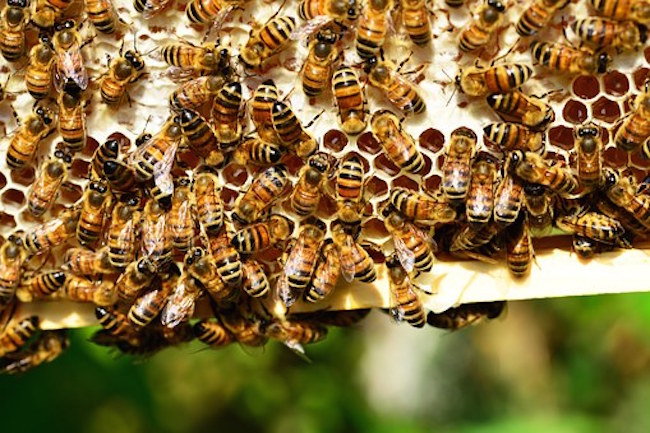Why Are Honey Bees Dying? Study Finds Bee Lifespans 50% Shorter Than 50 Years Ago By Jocelyn Solis-Moreira for Natural Blaze
In another blow to bee pollinators, a new study has found that honey bees are living significantly shorter lives compared to 50 years ago. Several bee species are at risk of extinction from a loss of habitats and human activities, and this new finding suggests genetics may also be driving bees to die faster. Understanding which genes are shortening the lives of bees may help with the future breeding of honey bees which live longer.
Beekeepers know colony turnover is common as bees naturally age and die. Over the past decade, however, beekeepers have been reporting unusually high bee mortality rates and requiring more money and time to replace the colonies. According to the study authors from the University of Maryland, this is the first study to show a decline in honey bee lifespan regardless of environmental stressors. Instead, it’s possible their genes may be the culprit for their shorter lifespans.
The idea to study the honey bee life cycle came from a previous investigation where scientists were raising adult bees in a laboratory. The team collected bee pupae from honey bee hives when the pupae were within 24 hours of emerging from the wax cells they are reared in. The collected bees finished growing in an incubator and then placed in special cages when reaching adulthood. In that study, the team was looking at the effects of swapping caged bees’ sugar water with plain water, mimicking the natural conditions of the wild. Study authors realized that no matter what food or water they gave the honey bees, the caged bees died sooner than expected (17.7 days versus 34.3 days in the 1970s).
“When I plotted the lifespans over time, I realized, wow, there’s actually this huge time effect going on,” says lead study author Anthony Nearman, a PhD student in the department of entomology, in a university release. “Standardized protocols for rearing honey bees in the lab weren’t really formalized until the 2000s, so you would think that lifespans would be longer or unchanged, because we’re getting better at this, right? Instead, we saw a doubling of mortality rate.”




